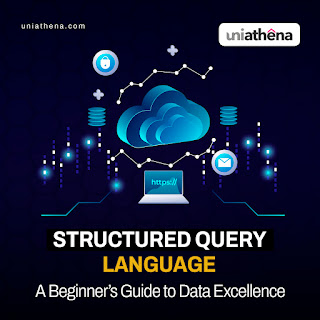Speak Data Fluently: Unlock Opportunities with One Essential Skill
In the age of data dominance, it is not only a technical skill but a career booster to learn to speak the language of databases. Whether you are working in IT, marketing, finance, or even logistics, SQL (Structured Query Language) has become the foundational tool powering data-driven decisions.
An SQL Diploma is the ideal starting point for anyone who wants to hone this essential skill quickly and efficiently. Particularly, when it is intended to be flexible, self-paced, and outcome-based.
What Is SQL Used For? The Essential Tool Behind Data Operations
SQL is not only a set of commands, but the foundation of the digital data economy. It enables professionals in different spheres to complete a diverse range of necessary tasks:
Data Storage and Retrieval: SQL offers a basis for how data can be created, stored, and organised in databases. Be it customer information, transaction history, or product stocks, SQL allows the storage of the same to be organised in a way that can be recalled at any time when one needs it.
Data manipulation and updating: Businesses are ever changing, and so are their data requirements. It is easy to insert, alter and delete records using SQL. Real-time data manipulation enables organisations to maintain their databases in a current, accurate and consistent state, keeping every stakeholder aligned with the latest insights.
Data Analysis and Reporting: SQL allows the analysis of complex data using advanced querying capabilities. Organizations use the ability to produce reports, detect trends, and develop ideas about customer behaviour, sales trends or operational efficiencies, which in turn is vital in strategic planning.
Data Security and Access Control: In the age of sensitive information, SQL plays an important role in data security. Access controls and user privileges help organisations limit access to data to only authorized users, ensuring confidentiality and data privacy requirements.
Exploring SQL Categories: Building Blocks for Data Mastery
You can maximise SQL's potential when you learn its core categories. These are the categories that are used as a basis for the management and manipulation of data effectively.
Data Definition Language (DDL): DDL has the role of defining and controlling the database objects such as tables, indexes, and schemas.
The database administrators can organise the data environment with commands like CREATE, ALTER, and DROP. Being a master of DDL will ensure your ability to create databases that are customised to the requirements of your organisation or project.
Data Manipulation Language (DML): DML is the language used to perform the fundamental data insert, update, delete and select in the table. It is easy to manipulate data using commands such as INSERT, UPDATE, DELETE and SELECT.
Data Control Language (DCL): DCL deals with granting privileges and access to database objects. Commands such as GRANT and REVOKE control access to data, allowing users to view or edit it, thereby providing security.
Data Query Language (DQL): DQL is primarily composed of a SELECT statement, which is used to query data based on specific criteria. It also enables filtering, sorting, and aggregation of data, providing valuable insights.
Transaction Control Language (TCL): TCL is concerned with transaction management so as to achieve data consistency and reliability. Transaction boundaries are controlled by issuing commands such as COMMIT, ROLLBACK, and SAVEPOINT. It ensures that changes to data are handled in a reliable manner, and failures do not compromise the database.
Embrace Your Data Future with UniAthena’s SQL Diploma
For professionals short on time but big on ambition, the SQL Diploma offered by UniAthena presents a unique opportunity. Within only 1-2 weeks of self-paced learning, you will gain knowledge of the basics of database design, as well as reach more complex topics such as joins, views, stored procedures, and indexes.
Moreover, by blending theory with hands-on practice, it equips learners to write efficient queries, manage databases confidently, and apply key SQL components for effective data manipulation. Bonus? You will also have an opportunity to get a Blockchain-verified certification, which will provide your resume with the additional touch of credibility.
Your Gateway to Data Confidence Starts with SQL
Where data drives almost every decision, SQL is not an option, it is a necessity. With the outcome-based, flexible course offerings, such as the SQL Diploma, the journey to data fluency is more accessible than ever before.
Whether you’re exploring SQL Certification Online or comparing options for the Best SQL Certification Course, this is your cue to move on. Because when you understand data, you don’t just keep up, you lead. Explore now.




Comments
Post a Comment